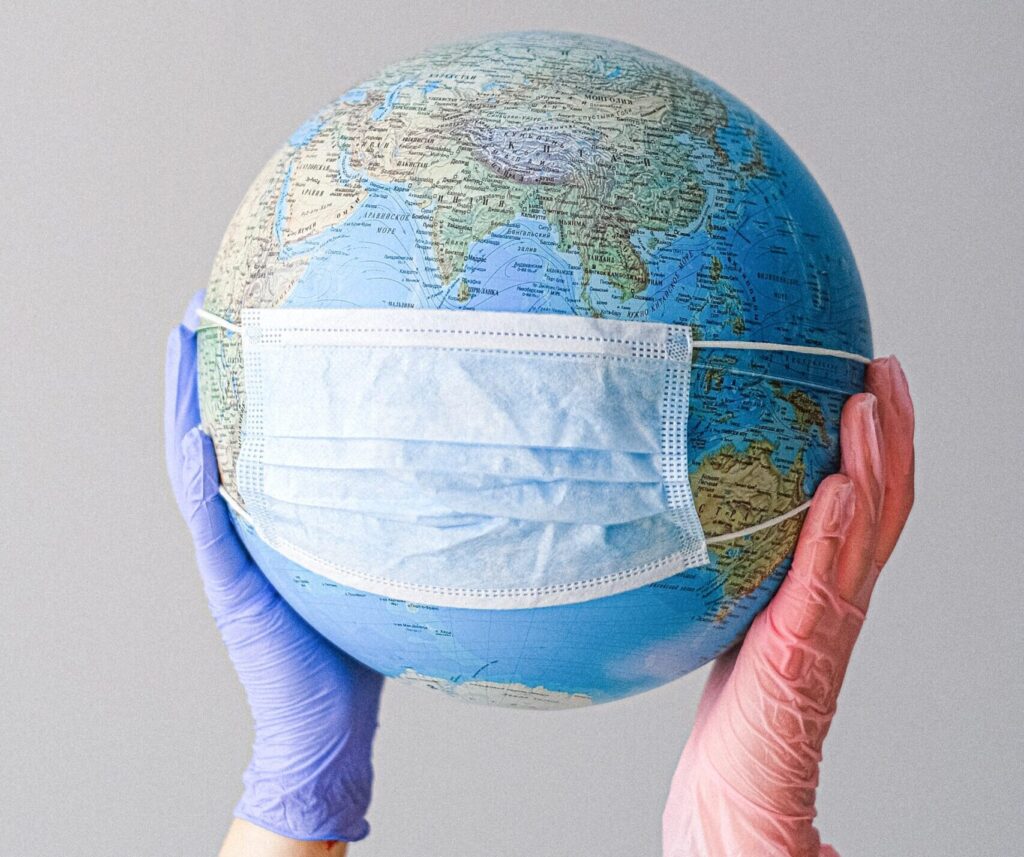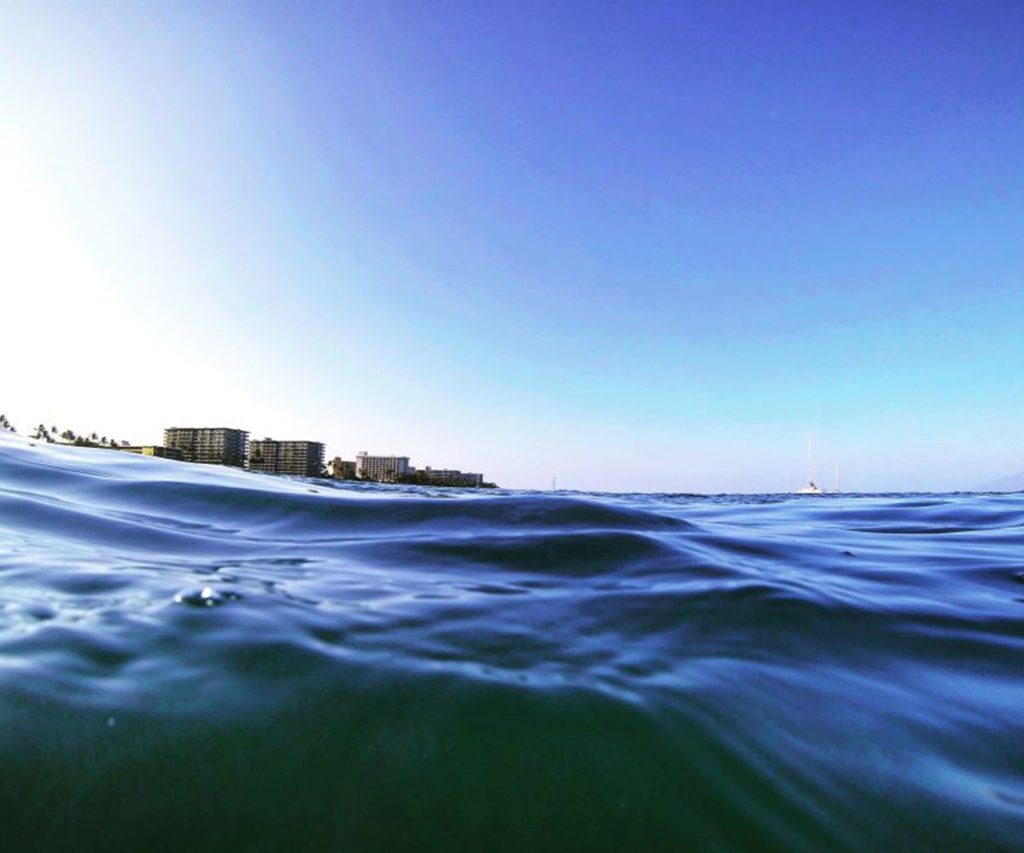Experiential learning nurtures students’ creativity, problem-solving, and leadership skills. That is precisely what the Impact Lab Course aims to achieve. The course provides students with an authentic work experience, helping them to gain exposure to different aspects of creating a positive social impact. Not only does the course challenge creative young minds, but by connecting youth with social impact leaders, it also promotes greater shared impact.
We interviewed Jolyn Yin, currently a year one BBA student, about her first professional internship with GREEN Hospitality as a Business Development intern. She shares her insight on social impact and how the course provided her with the opportunity to apply her business and sustainability knowledge to real-life scenarios.
Can you give us a brief introduction about yourself? Which year are you in and what major are you studying? What do you do to relax or self-care?
My name is Jolyn Yin and I am a first-year BBA, Bachelor of Business Administration student who is looking forward to joining the EDI (Entrepreneurship, Design, and Innovation) major. I’m quite interested in both business and design.
As for relaxation, I like to turn off all the lights in my room and watch Netflix in bed or play games with my friends.
Why did you apply to GREEN Hospitality? What is unique about your particular company?
I applied to the Impact Lab Course because I wanted to try experiential learning. For my first year, I was just stuck in lecture halls, tirelessly listening to lectures and reading PowerPoints. I felt like there was something more that I could do. Then, I heard 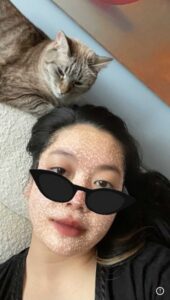 about this amazing opportunity called the Impact Lab Course, where I get to experience an internship while continuing with my studies. Therefore, I jumped on that opportunity.
about this amazing opportunity called the Impact Lab Course, where I get to experience an internship while continuing with my studies. Therefore, I jumped on that opportunity.
I chose GREEN Hospitality because I’m quite interested in the hospitality field, especially the concept of “experience economy”, which advertises experiences as a commodity in the hospitality and tourism management context. Back in high school, I didn’t get an opportunity to learn about the hotel and restaurant industries and how the businesses work. Even in university, I was still stuck with learning the more generic, overall theory.
GREEN Hospitality does a lot of conferences and events, and has regular interactions with its stakeholders. I thought this would be a great opportunity for me to learn more about how to talk to and network with other people as well as improve my interpersonal skills.
Tell us about your experience at Impact Lab thus far. What are your roles and responsibilities in GREEN Hospitality?
Overall, it’s been great and fun. I get to make an impact and produce something. My responsibility as a Business Development intern is to develop a program for young students to learn more about sustainability, specifically for the summer holiday that the Hong Kong government pushed forward to March-April for local schools. We jumped on that opportunity immediately and said, “Let’s design a program and see if we can get some students to join!” The entire purpose of business development is to generate income to support our other charitable operations. Through these experiences, I have been able to develop different skills from graphic design to workshop planning.
It’s my first time doing everything more professionally. Back in high school, our school offered some opportunities to host our after-school activities by designing programs or workshops. I’ve had some experiences with that, but not on this professional level.
Now that the March summer holiday is coming to an end, how did the project go? What were your responsibilities throughout the process?
The program was intended to launch in March but unfortunately, we weren’t able to get any students on board. We thought that a week would be enough time to recruit students for the program but it wasn’t. Understanding that things don’t always succeed in the first place was a huge learning experience. Since we didn’t have the existing connections with students, it was very difficult to get people on board. We were only able to advertise the workshops within our network which mostly consisted of professionals and people within the industry when we should be targeting parents and students.
At the current stage, we are modifying our existing program and planning to launch it again for the upcoming summer holiday. This gives us more time to recruit students and make further changes. Also, a school actually reached out to us and booked our workshop for the end of April. Originally our workshop was intended to bring students from different schools together, like a camp. But now, we’ve changed our direction and have been working towards specializing the workshop for it to be hosted in individual schools.
What is your one major takeaway from the Impact Lab experience? If you had previous internship experiences, how is Impact Lab different from them?
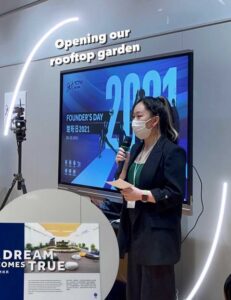 As I’ve mentioned before, this is my first formal internship experience. I learned that you have to experience it to learn about something. For me, I do find lectures a bit more boring. A lot of the stuff they talk about is too theoretical. But when I’m working on my internship at GREEN Hospitality, I get to apply a lot of the knowledge I learned, whether it’s through school, or from reading books. This has helped me cement what I know and develop my understanding of, for example, marketing.
As I’ve mentioned before, this is my first formal internship experience. I learned that you have to experience it to learn about something. For me, I do find lectures a bit more boring. A lot of the stuff they talk about is too theoretical. But when I’m working on my internship at GREEN Hospitality, I get to apply a lot of the knowledge I learned, whether it’s through school, or from reading books. This has helped me cement what I know and develop my understanding of, for example, marketing.
How has this experience benefited your personal growth? Has it influenced your way of thinking about creating social impact, whether personally or through your future work?
This opportunity has allowed me to learn what it’s like to work with a supervisor. I learned a lot about how to have effective communication with GREEN Hospitality’s Executive Director, Lucia. There’s a lot of double-checking so there is a lot to learn in terms of communication. Learning and building on my interpersonal skills will help me with my future career. Also, especially with COVID, the internship provided me with an opportunity to talk to other people despite being stuck at home all the time.
I would say that the experience sort of strengthened my belief that, as an individual, you can make an impact on your community. It’s not as easy but it’s definitely within reach. I feel like what I’m doing here, teaching and building a curriculum with Nicole, my colleague, is not easy, but it’s not difficult. It’s possible and you just have to go for it.
If you could solve any one world problem/issue, what would it be? Why?
I would say male violence against women, I think this is a serious issue that is all around the news but at the same time, we take it for granted. We just see the news and act like, “Oh yeah, women need to be protected. We need to be more careful when we’re outside.” But why should it be women’s responsibility? Shouldn’t it be men that need to stay at home? A lot of the time, I think the dynamics and perspectives on that are not right. I want to help stop and minimize male violence against women.
How are you dealing with the new COVID restrictions? What is the main thing that you have learned from the pandemic so far?
Because of the strict COVID restrictions, it felt quite pointless to stay in Hong Kong. Our family decided to travel to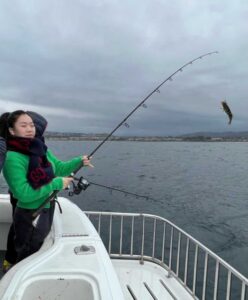 Singapore and the U.S. Traveling really helped me with my mental health since when you are stuck at home for so long, it’s quite suffocating.
Singapore and the U.S. Traveling really helped me with my mental health since when you are stuck at home for so long, it’s quite suffocating.
One of the challenges I’ve faced while traveling with the restrictions was the constant flight cancellations. We barely got on our flight back to Hong Kong because of the policy and documentation issues. We were supposed to fly from the U.S to Hong Kong but the flight got canceled. Even when we tried to board another flight, it didn’t work. Because there were only so many flights back to Hong Kong, we drove to Canada in order to catch a flight there. It was quite a nerve-wracking experience. It probably was one of the worst hardships I’ve experienced in my life.
Who do you think should take the Impact Lab Course?
Some students go to university and it’s very easy for them to learn with all the lectures and everything. However, I’m more like the students that struggle with it because it’s not very interactive. I would suggest this to students that are not very happy with the traditional book-based mode of teaching and learning and want to try something new. You also get credit for doing something that’s more experiential and it’s so much easier than taking a normal six-credit course.
What is your advice for future Impact Lab students?
Take this as an opportunity to learn more about what you’re doing. For example, this internship gave me the motivation to read more books about businesses and sustainability because I can apply that information right back into my internship work.
*Acknowledgment: This interview was conducted and written by Haewon Cho, an Impact Lab intern of the FSI Communications and Marketing team.


